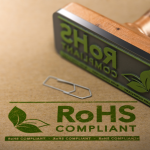NPA GMP Certification Program: Ensuring Quality and Integrity in Dietary Supplement Manufacturing
Introduction:
In the ever-evolving landscape of the dietary supplement industry, the Natural Products Association (NPA) has emerged as a standard-bearer for quality assurance through its Good Manufacturing Practices (GMP) Certification Program. This comprehensive guide delves into the intricacies of the NPA GMP Certification Program, its significance, requirements, and impact on the supplement industry. Additionally, common questions surrounding GMP certification, including the NPA GMP certification itself, will be addressed to provide a comprehensive understanding.
Understanding NPA:
The Natural Products Association, established in 1936, plays a pivotal role in advocating for consumers’ rights to access health-improving products. With a focus on natural products, the NPA sets industry standards and promotes best practices, particularly through its GMP Certification Program.
Significance of GMP Certification:
GMP, or Good Manufacturing Practices, is a set of regulations crucial for ensuring the consistent quality and safety of products, especially in the dietary supplement industry. The NPA GMP Certification Program, a voluntary initiative, goes beyond regulatory requirements to emphasize quality, purity, and transparency.
NPA GMP Certification Program Overview:
Scope and Applicability
The NPA GMP Certification Program is designed for manufacturers of dietary supplements, including vitamins, minerals, herbs, and related products. It establishes standards for various production aspects, including sourcing, manufacturing processes, quality control, and record-keeping.Voluntary Participation:
Participating in the NPA GMP Certification Program is a voluntary commitment by manufacturers to adhere to high standards of quality. Companies undergo thorough assessments to obtain certification, showcasing their dedication to meeting or exceeding industry benchmarks.Certification Requirements:
Raw Material Sourcing:
Manufacturers must demonstrate rigorous processes for sourcing raw materials, ensuring the identity, purity, and quality of ingredients.Manufacturing Processes:
Stringent assessments are conducted on manufacturing processes, including equipment, facilities, sanitation practices, and employee training, to meet or exceed industry standards.Quality Control:
GMP certification emphasizes robust quality control measures, requiring comprehensive testing and validation procedures to guarantee the consistency and accuracy of finished products.Record-Keeping and Documentation:
Thorough documentation is a cornerstone of GMP compliance. Manufacturers must maintain detailed records tracing products from raw material acquisition to the final product, ensuring traceability and accountability.Facility Inspections:
On-site inspections by the NPA ensure that manufacturing facilities adhere to prescribed standards and have effective processes for maintaining product quality.Benefits of NPA GMP Certification:
Consumer Confidence:
The program instills confidence in consumers, indicating a commitment to transparency, quality, and safety.Market Access:
GMP certification enhances market access, providing certified manufacturers with a competitive advantage.Quality Assurance:
The rigorous standards ensure that certified products meet or exceed industry quality benchmarks, fostering trust among stakeholders.Risk Mitigation:
GMP certification helps mitigate risks associated with product recalls, regulatory issues, and reputational damage by reducing the likelihood of compromising product quality.The Impact on the Supplement Industry:
The NPA GMP Certification Program has a profound impact on the supplement industry:
Elevating Industry Standards:
By setting a higher bar for manufacturing practices, the program contributes to the elevation of industry standards.Encouraging Continuous Improvement:
Certification encourages companies to embrace continuous improvement, staying at the forefront of quality and safety.Consumer Education:
GMP certification serves as an educational tool for consumers, highlighting the importance of quality manufacturing processes.Common Questions:
What is NPA GMP Certification?
The NPA GMP Certification is a voluntary program established by the Natural Products Association to ensure that manufacturers of dietary supplements adhere to high standards of quality, purity, and transparency.
How do I become GMP certified?
To become GMP certified, manufacturers typically need to engage in a voluntary certification program, such as the NPA GMP Certification Program. This involves a thorough assessment of manufacturing processes, raw material sourcing, quality control measures, and facility inspections.
What is the GMP certification?
GMP certification, or Good Manufacturing Practices certification, is a designation awarded to companies that adhere to specific industry standards ensuring the consistent quality and safety of products.
What is NSF GMP certification?
NSF GMP certification is another certification program that focuses on Good Manufacturing Practices. It is provided by NSF International, an organization that offers third-party verification of products and systems, including dietary supplements.
Conclusion:
In conclusion, the NPA GMP Certification Program stands as a beacon for quality and integrity in the dietary supplement industry. As consumers prioritize health and wellness, this certification plays a crucial role in ensuring that dietary supplements meet the highest standards of quality and safety. The program not only benefits individual companies but also contributes to the overall elevation of industry standards, fostering consumer confidence and promoting responsible business practices. The common questions addressed provide clarity on the NPA GMP Certification and its role in shaping the supplement industry’s future.
Source: NPA GMP Certification Program


